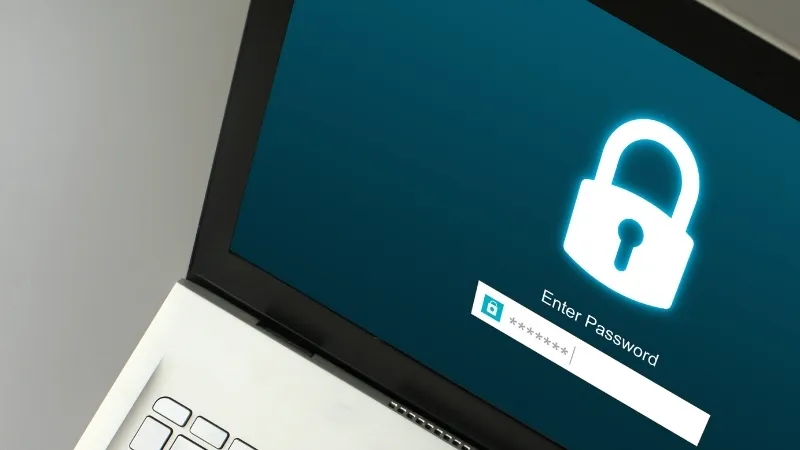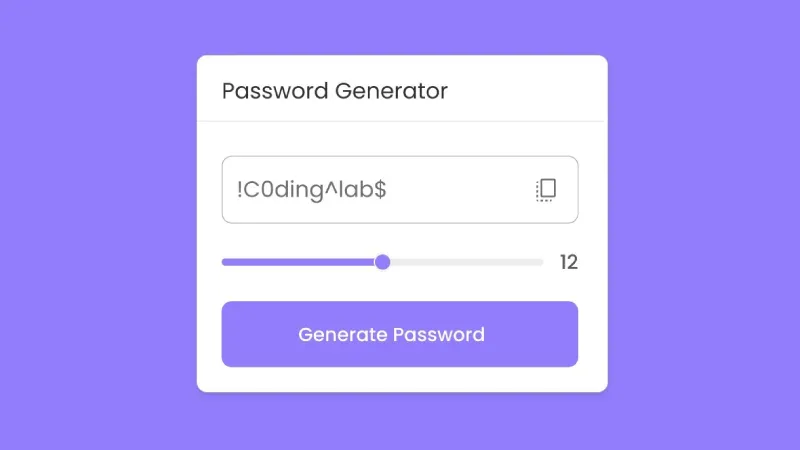
A strong password is your first line of defense in the digital domain. It’s not just about creating random characters; it’s about building a barrier that keeps intruders out. By making it complex and unique, you considerably reduce the risk of data breaches and identity theft.
Additionally, it enhances security against brute-force attacks, ensuring that your personal information remains private. The complexity of your password can greatly lower the chances of being compromised.
But how exactly do you go about crafting one that truly protects your privacy? Understanding the nuances of password strength could mean the difference between security and vulnerability, leading to a deeper exploration of effective strategies.
How Can a Strong Password Help Protect Your Privacy?
A strong password is your first line of defense against unauthorized access to your accounts because of it:
Prevents Unauthorized Access
Strong passwords act as a formidable barrier against unauthorized access to your personal information. They transform your accounts into fortified vaults, making it considerably harder for attackers to guess or crack your login credentials.
The strength of your password directly correlates with the level of protection it provides. Weak passwords, like “123456” or “password,” are akin to leaving your front door wide open, inviting anyone to stroll in.
Understand that every time you reuse a password across different accounts, you increase your vulnerability. If one account is compromised, all linked accounts are at risk.
Protects Against Data Breaches
When a breach occurs, attackers often exploit leaked credentials to gain unauthorized access to multiple accounts. If you use unique passwords for each account, it notably reduces the risk of them accessing your other accounts, even if one password is compromised.
A strong password typically includes a mix of uppercase and lowercase letters, numbers, and special characters, making it harder for attackers to guess or crack. This complexity acts as a barrier, giving you valuable time to respond to a breach if your credentials are leaked.
Furthermore, relying on a password manager makes it easy to create and store complex passwords, while preventing you from repeating them. The more unique and intricate your passwords are, the less likely attackers will succeed in accessing your sensitive information.
Reduces Risk of Identity Theft
Using a strong password not only defends against data breaches but also considerably reduces the risk of identity theft. When you use complex, unique passwords for your accounts, cybercriminals have a harder time accessing your sensitive info.
Strong passwords typically include a mix of uppercase and lowercase letters, numbers, and special characters. This complexity makes it exponentially more difficult for hackers to guess or crack your password.
Your social security number, bank details, and other identity-related information can be exploited by malicious actors if you safeguard them. If someone gains access to your accounts, they can impersonate you, leading to financial loss and long-lasting damage to your reputation.
Enhances Security Against Brute-Force Attacks
A complex password can take thousands of years to crack with brute-force methods, depending on its length and character variety. This is vital in enhancing your security against automated attacks, which rely on systematically guessing passwords.
Passwords that combine uppercase and lowercase letters, numbers, and special symbols increase the number of possible combinations an attacker must try. For instance, a simple password may only have a few thousand combinations, making it relatively easy for a brute-force tool to crack it in a matter of hours.
Keeps Personal Information Private
You need a strong password to protect your emails, social media profiles, and other online accounts from unauthorized access. When you use a strong password, you greatly reduce the risk of someone gaining entry into your accounts, which could lead to identity theft or data breaches.
Consider the sensitive information stored in your email, bank statements, personal correspondence, and important documents. A weak password can make it all too easy for cybercriminals to infiltrate your account, potentially exposing your private life and professional dealings.
Secures Financial Information
Security is paramount when managing your financial information, and a robust password plays an essential role in that protection. Strong passwords act as the first line of defense against unauthorized access to your banking, shopping, and payment platform accounts.
When you create a complex password, you greatly reduce the risk of hackers exploiting weak credentials to steal your financial data. Using a combination of uppercase letters, lowercase letters, numbers, and symbols in your password makes it exponentially harder for cybercriminals to crack it through brute-force attacks.
How to Create a Strong Password with a Random Password Generator?

To create a strong password, you should utilize a random password generator, which guarantees high complexity and unpredictability.
Utilize a Random Password Generator
When creating a strong password, utilizing a random password generator can greatly enhance your protection. These tools generate passwords that are not only complex but also unique, making them difficult for hackers to guess.
When you use a random password generator, you can customize your password’s length and complexity. Most generators allow you to include a mix of uppercase letters, lowercase letters, numbers, and special characters.
Consider a Browser-Based Password Manager
A browser-based password manager can make creating and storing strong passwords easier than using a random password generator. Instead of manually inputting each password, you can let the password manager generate complex passwords for you.
When you use a password manager, it automatically fills in your login credentials across various sites, saving you time and effort. This convenience encourages you to use unique passwords for every account, greatly enhancing your security posture.
What is a Random Password Generator?
Why rely on guesswork for your passwords when a random password generator can provide a robust solution? This tool creates secure, unpredictable passwords that combine uppercase and lowercase letters, numbers, and special symbols.
Random password generators function by utilizing algorithms to produce strings of characters that are nearly impossible to guess or crack. Each password generated is unique, ensuring that even if one is compromised, others remain secure.
How Can a Random Password Generator Improve Security?
Utilizing a random password generator greatly improves your security by creating complex, unique passwords tailored for each account. This approach guarantees that no two passwords are alike, which is critical in safeguarding your digital presence.
Password generators typically create long strings of characters, incorporating uppercase and lowercase letters, numbers, and special symbols. This complexity makes it nearly impossible for attackers to guess or crack your passwords through brute force methods.
How Does Chrome Suggest a Password?
When you create an account or update a password in Google Chrome, the browser automatically suggests a strong, randomly generated password tailored for you. This feature is designed to enhance your security by eliminating the need for you to come up with a secure password yourself.
When you accept the suggested password, Chrome securely stores it in your Google account. This storage means you don’t have to remember complex passwords, as they’re readily accessible whenever you log in.
Let Technology Work for You: Case for Random Password Generators
A strong password doesn’t just protect your accounts, it safeguards your privacy, finances, and reputation. By following best practices and using tools like password managers, you can protect yourself against cyber attacks.
Remember, the cost of weak security is far greater than the effort it takes to create a strong, unique password. Start today, and take control of your online safety, your future self will thank you!
So, while you’re at it, let a random password generator do the heavy lifting. After all, who wouldn’t want a password so complex that even your dog would struggle to bark it out? Protect your privacy, because hackers don’t take holidays!
